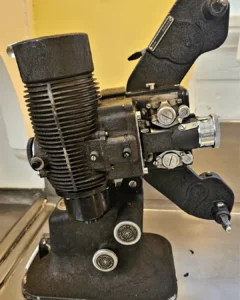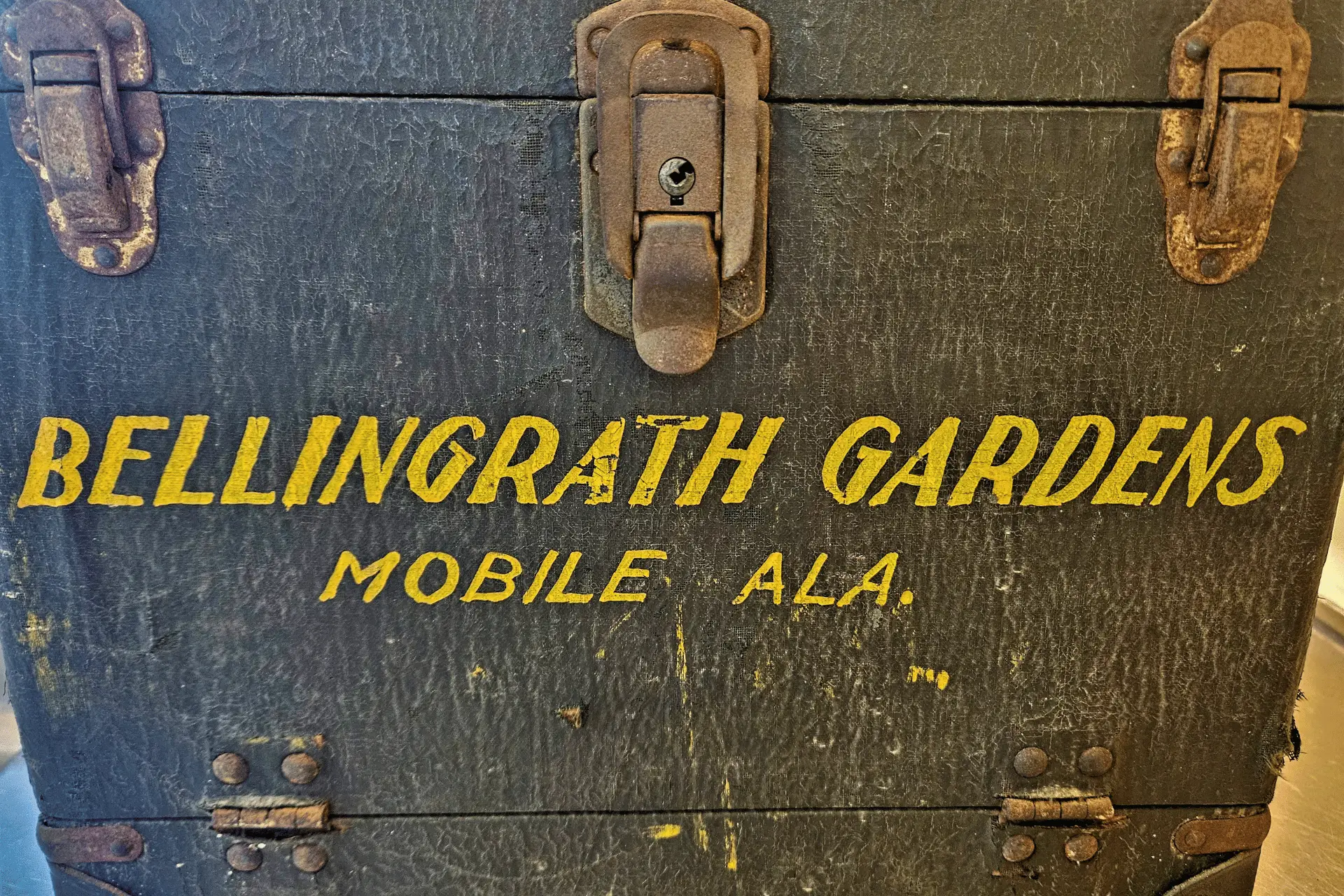An Addition to the Collection
When Mrs. Bellingrath’s grandniece, Serena Edgar Wilcox, moved to Auburn to be near her brother, Ernest, a sale was conducted for items she would no longer need. One item given to Bellingrath Gardens was a large carrying case marked “Bellingrath Gardens, Mobile, Ala.”
Inside the case was a Bell and Howell film projector. That company was founded in Chicago in 1907 by Donald Bell and Albert Howell. Chicago and New York were both locations for early motion picture studios in the first two decades of the century, and Bell and Howell was producing a hand-cranked movie camera by 1910.
The first all-metal motion picture camera was also made by Bell and Howell. It was so expensive that only studios could afford to buy them. One individual who was able to purchase one was Charlie Chaplin, who was hired by Chicago’s Essanay Studios in 1915 at $1,250 per week. (Today, that would equal nearly $40,000.)
The World’s First
In 1934, Bell and Howell introduced the world’s first movie projector for amateurs. The model now in the Bellingrath Collection has a metal plaque with numerous patent numbers, so it apparently dates to late in that decade. 
When the Chapel was completed in 1939, it was ultimately turned into a makeshift movie theater so that Mr. Bellingrath could entice visitors to return. As they sat in the Chapel on benches, they watched films depicting the Gardens at other times of the year to prove that it was truly a “Year-Round Garden.”
This portable version may have been used there, but Mr. Bellingrath’s grandnephew, Ernest Edgar III, had this to say about it:
“I know that projector well… 16 mm. My father took many movies of the Gardens as well as Coca-Cola events and showed them at many gatherings. In fact, as a teenager, along with my mother, I would show movies to the children in the Rotary Crippled Children’s Clinic in the old Mobile Infirmary on Spring Hill Avenue. Then we would take them to the Roxy Theater to see a movie.”
Many of those children were suffering from the effects of polio, which has largely been eradicated thanks to Rotarians. Today, the Rotary Children’s Foundation is the descendant of the earlier clinic and offers grants to local organizations that assist disabled children. Your author is proud to serve on its board.
The movie-making business would largely relocate to California by World War I. Essanay Studios closed its doors in 1918 and sold its facilities to Bell and Howell. Their movie projector, purchased by Walter Bellingrath so long ago, has come home.
Visit and Connect with Us
- Tour the Bellingrath Home
- Learn more about our collections
- Follow us on Instagram, Facebook, and Twitter for the latest updates.
- Share your experience with #BellingrathHistory


